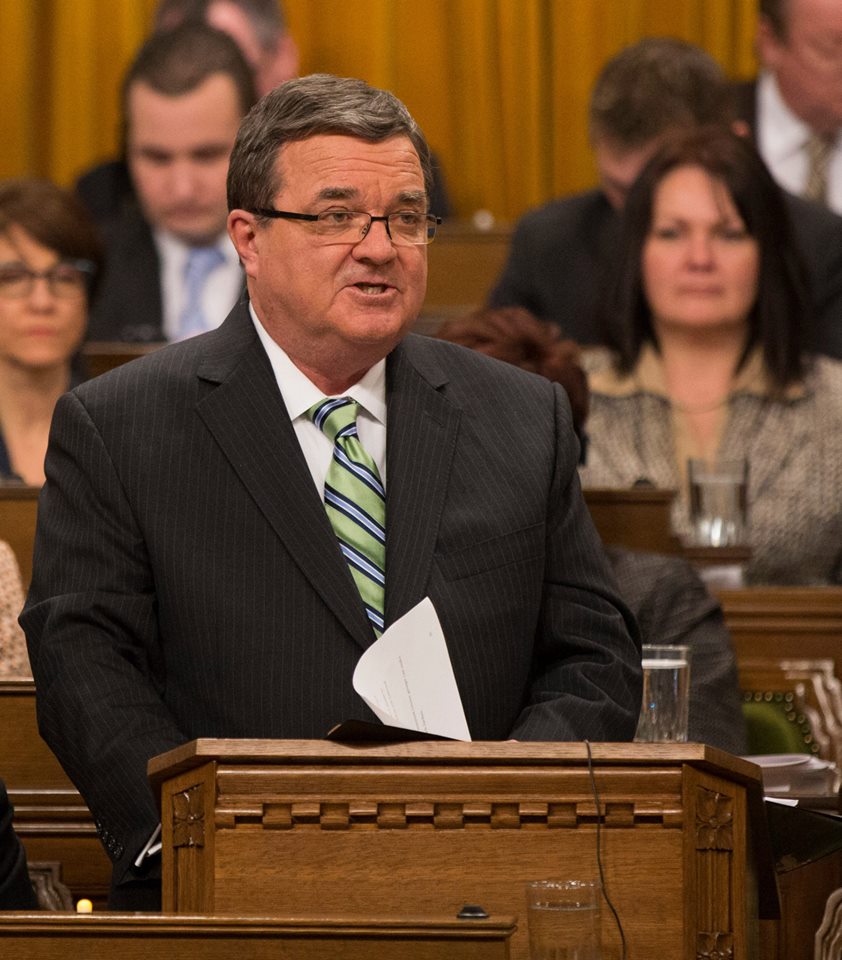
OTTAWA – By all accounts, Jim Flaherty appeared to be looking forward to the next phase of his life.
The former finance minister for two conservative governments — Stephen Harper’s in Ottawa and Mike Harris’ at Queens Park — had only three weeks ago stunned observers by announcing he was leaving politics for more family time and to pursue a private sector career.
There would have been plenty of takers for a lawyer who had gained a solid reputation in financial and economic circles in Canada and around the world for his steady handling of the 2008-09 global recession.
But as sudden and unexpected as his resignation was, news of his death of an apparent massive heart attack Thursday afternoon came as even a great shock, despite his well-publicized difficulties with a rare skin condition that had afflicted him for over a year.
A statement from his family did not reveal the circumstances of his death, but those who had spoken to the 64-year-old in recent days say he revealed no concerns about his health.
Mike Harris told CBC he spoke to Flaherty on Wednesday to ask about his health and was assured he felt fine and looking forward to retirement and spending more time with his family — wife Christine Elliott, an Ontario MPP, and his triplets sons John, Galen and Quinn.
Former chief of staff Kevin McCarthy said he had talked to Flaherty only last week and found him a man looking forward to the future.
“To me that’s one of the saddest things,” he said. “He and I had talked for years about him stepping down and spending time with his family and making some money in the private sector and I truly believe that’s why he stepped down, it wasn’t health reasons. He had accomplished what he wanted.”
Regan Watts, who worked in Flaherty’s office for several years as a political staffer, noted that he had been a busy cabinet minister for nearly his entire 19 years in politics.
“From a human perspective, here’s a man whose family had let him be Jim Flaherty the public servant for that entire time, and they just finally got him back. That’s the human element to all of this. Because it’s so tragic, and because it’s so sudden, that’s the part that hurts the most.”
To most Canadians, Flaherty will always be closely associated with his handling of the global financial crisis that hit Canada in October of 2008.
Economist Jack Mintz, who advised the minister during the period, said the crisis was a trial by fire and Flaherty, despite not being an economist, proved his mettle by not only what he did but also what he didn’t.
“You get a lot of advice, people are saying different things and he did all the right moves,” said Mintz.
“And he was really was quite strong about his views. He wanted the infrastructure money to be spent within two years and told the provinces and municipalities you get a move on or lose it, even though Toronto delayed for a whole year because they wanted to build subways.”
Another clever intervention, Mintz said, was Flaherty’s decision to have the government take $175 billion of mortgage value off the bank’s books to free up the Canadian money markets. While other governments were bailing out banks, Flaherty’s scheme wound up making money for Ottawa.
Chisholm Pothier, his long-standing chief spokesman, said Flaherty realized early on the crisis was serious and needed to do something despite his fiscal conservative instincts.
“He always said through the crisis when he was running up very substantial deficits, which would not be his preferred approach, ‘I’m not an ideologue, I’m a pragmatic person,’ ” Pothier recalled.
He noted that Flaherty included measures for the disabled in each of his budgets, as well as bringing in the working income tax benefit, along with some conservative measures.
Another misconception, added McCarthy, was that his partisanship defined him. He was criticized for his attacks on the NDP and the Ontario Liberal government, for instance.
“He comes across as this combative, street-fighter, and he can be, but he’s also got a huge heart. How much he loved kids, what he did for the disabled. He was in this because he cared about people.”
That may explain some of the heart-felt eulogies Thursday, from such political enemies as NDP Leader Thomas Mulcair, Elizabeth May of the Green Party and Bob Rae, the former NDP Premier of Ontario and Liberal MP.
“Obviously we didn’t always agree, but he was always good to deal with and had a sense of human and I for one will certainly miss him,” said John McCallum, who often squared off against Flaherty as Liberal finance critic in Ottawa.